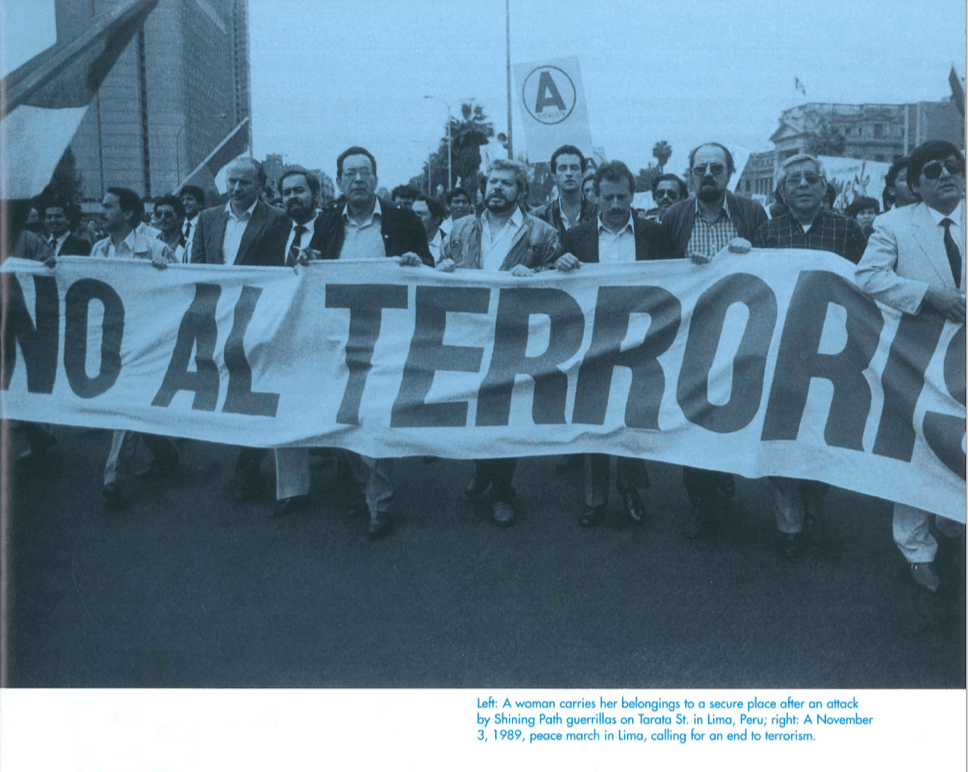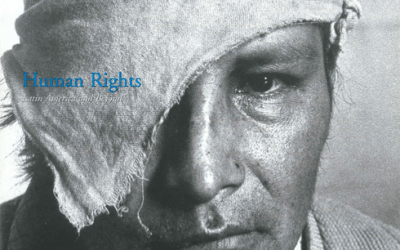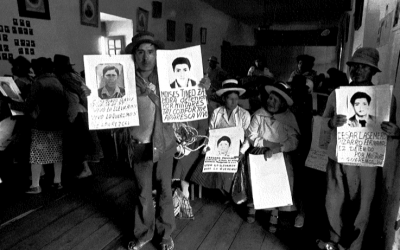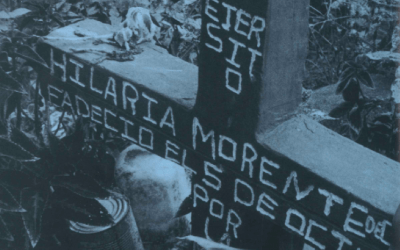Internationalizing Human Rights
A Look at the Americas

The internationalization of human rights standards, under way for decades, has accelerated in recent years. More countries than ever before have incorporated human rights norms and protections in their constitutions, legal codes, and judicial processes. New international courts with jurisdiction over human rights abuses have been created or strengthened, while international enforcement mechanisms have become more effective. International efforts to define and implement social and economic human rights have also intensified.
The trend toward increasing public and governmental support for human rights norms and institutions in much of the world, including most of Latin America, contrasts with the current drift of U.S. domestic and foreign policy. If current trends continue, human rights could become a significant arena of contention between the United States and its neighbors.
The internationalization of human rights implies that human rights standards are universally applicable despite cultural and other differences between nations. Internationalization also embodies the idea that wealthy nations, corporations, and individuals have a responsibility to help alleviate the poverty, disease, and ignorance that afflict much of the third world. Internationalization also involves international enforcement mechanisms to punish transgressors when local and national courts are unable to do so.
In Latin America, the consolidation of democratic regimes after decades of authoritarian and military rule has led most countries in the region to embrace these trends. Democracy clauses in trade agreements and aid programs became common in the 1990s. Although such clauses are a relatively weak mechanism lacking specific standards, their adoption helped to underpin the increasing activism of the Organization of American States and contributed to modifying or reversing unconstitutional takeovers in Ecuador, Guatemala, Paraguay, Peru, and Venezuela.
Human rights treaties and agreements now make it possible for prosecutors to pursue human rights violators no matter where they are living or what their citizenship. International agreements, including the treaty that established the new International Criminal Court, generally give precedence to courts in the alleged perpetrator’s home country. ICC prosecutors can intervene only when home country courts are unable to work; and like prosecutors in other settings, they have discretion to refuse to pursue frivolous cases.
Most of the governments in the hemisphere have ratified the treaty establishing the ICC. The new court’s Chief Prosecutor is Luis Moreno Ocampo, who helped lead the prosecution of Argentine generals in the 1980s. A number of Latin American governments have also moved to fulfill their commitments under other agreements to cooperate with international efforts to track down, arrest, and extradite individuals accused of serious human rights abuses. This year, for example, Mexico honored a request for extradition from a Spanish court. Mexican police arrested Ricardo Miguel Cavallo and turned him over to Spanish authorities on a warrant charging the former Argentine naval officer with kidnapping, torturing, and murdering hundreds of victims at the Mechanics School of the navy (ESMA) in Buenos Aires.
Strengthening of the international human rights regime has reinforced local pressures to prosecute alleged perpetrators in several Latin American countries. The case of Augusto Pinochet, for example, began with the arrest of the former Chilean ruler in Britain. British courts eventually refused to extradite him to Spain, because human rights standards forbid prosecution of people too sick or infirm to defend themselves. The prolonged controversy, however, changed the political climate in Chile dramatically. Prosecutions of other military officers implicated in atrocities committed during the dictatorship are now possible.
The changed international environment also contributed to the establishment of the Peruvian truth commission, which recently released a comprehensive report documenting massacres and other abuses that occurred in the suppression of the Shining Path and Tupac Amaru guerrilla movements in the 1980s and 1990s. The Inter-American Commission on Human Rights, which adjudicates complaints throughout the Americas, negotiated the creation of a special prosecutor for this purpose.
International support also facilitated the creation of truth commissions, investigations and the release of government records in many countries, including Argentina, Brazil, Chile, Guatemala, Honduras, Mexico, and Peru. In every case,the release of authoritative information on past abuses has contributed to greater public understanding of the past and to enhanced support for future safeguards, including the implementation of international standards and enforcement mechanisms.
While evidence mounts of widespread impatience, even disillusionment, with elected governments that have failed to restore economic growth, reduce inequality and cope with other citizen demands, public support for human rights protections and enforcement remains high throughout Latin America. Public opinion in the region supports not only respect for civic and political rights, but also the development of social and economic entitlements.
The region’s most serious problems stem from armed conflict, mainly in Colombia; the brutality and corruption of criminal justice systems; the preoccupation with security threats that undermine political rights in Cuba; and the weakness and inefficiency of social policy, particularly in countries where ethnic divisions correlate with social stratification.
Trends in U.S. policy and opinion have moved in a quite different and opposed direction, especially since the September 11, 2001 terrorist attacks on New York and Washington. The U.S. administration announced in the spring that it would not submit the ICC treaty signed by President Clinton to Congress for approval. To the contrary, the United States began insisting that signatories to the ICC treaty, such as Colombia, sign agreements promising never to apply the treaty’s provisions to U.S. personnel as a condition for receiving U.S. military and other aid.
In addition, the United States has sought to evade obligations under international agreements concerning the treatment of prisoners of war and the responsibilities of victorious military powers. The United States has imprisoned some 600 men captured during the war in Afghanistan at its naval base at Guantanamo Bay in Cuba for more than two years. The U.S. government calls them “enemy combatants,” a category unknown to international law, to justify denying them access to legal counsel and refusing them other rights to which they would entitled as prisoners of war. Amnesty International’s latest annual report referred to this as a “human rights scandal.”
Similarly, the U.S. president was advised not to claim “victory” in Iraq in order to evade international legal requirements of occupying armies; instead, President Bush proclaimed an end to “major combat operations.”
U.S. policy after 9-11 has also posed challenges for civil liberties advocates in the United States, as well as human rights advocates around the world. New legislation gave the U.S. Attorney General the right to detain immigrants virtually incommunicado and without charge for extended periods of time. At least two U.S. citizens have been arrested and held in military jails without constitutional protections for many months. New executive decisions have extended to police agencies the authority to tap phone lines and conduct surveillance, even in the absence of any probable cause to think a crime is in prospect. Immigration policy also fell victim to 9-11. Several million undocumented migrants inside the United States remain in limbo, while more than 500 people die every year attempting to enter the country illegally at dangerous and remote locations.
The war on terror has also transformed the U.S. military aid program to Colombia. Until 2001, the U.S. aid was limited to the war on drugs; since then U.S. military aid has been extended on a massive scale to assist the Colombian government’s efforts to crush the guerrilla movements. Human rights organizations in Colombia have expressed dismay at the deterioration of human rights conditions as the military conflict intensifies. They have also criticized the Colombian government for its expressed willingness to concede impunity from prosecution to members of the rightwing paramilitary groups, perpetrators of horrendous massacres, in exchange for their promise to disband. President Alfonso Uribe seemed to imply that human rights workers would be a legitimate target in the war on terror when he responded to the criticism by calling human rights groups a front for terrorists.
Finally, the United States’ interest in a Free Trade Agreement in the Americas, which the western hemisphere nations agreed to negotiate and sign by 2005, has not been accompanied by any new commitment to assist the region in overcoming poverty and inequality. Social and economic human rights do not appear high on the U.S. agenda for Latin America.
These opposing trends make efforts to build a western hemisphere “community” of nations seem more utopian than ever. They suggest that over the long term, Latin American public opinion and governments are likely to turn increasingly toward other regions, especially western Europe, to forge more compatible partnerships than the United States is prepared to create. This gap in perception and policy is reversible, but it will take considerable effort, on both sides, to close it again.
Fall 2003, Volume III, Number 1
John Coatsworth is the director of the David Rockefeller Center of Latin American Studies and Monroe Gutman Professor of Latin American Affairs at Harvard University (on sabbatical). He is the Faculty chair of the Harvard University Committee on Human Rights Studies.
Related Articles
Human Rights: Editor’s Letter
During the day, I edit story after story on human rights for the Fall issue of ReVista. During the evening, I work on my biography of Irma Flaquer, a courageous Guatemalan journalist who was…
ONGs en América Latina y los derechos humanos
Las ONG ofrecen mil modos de recordar la dignidad humana a los gobiernos y las sociedades. Las dos experiencias que esbozo en esta nota reflejan algunas de las estrategias asumidas por…
Peru’s Human Rights Coordinating Committee
The human rights abuses that devastated Peru from the early 1980s to the mid 1990s are once again an issue of debate in that country with the release of the Peruvian Truth and Reconciliation’s…




